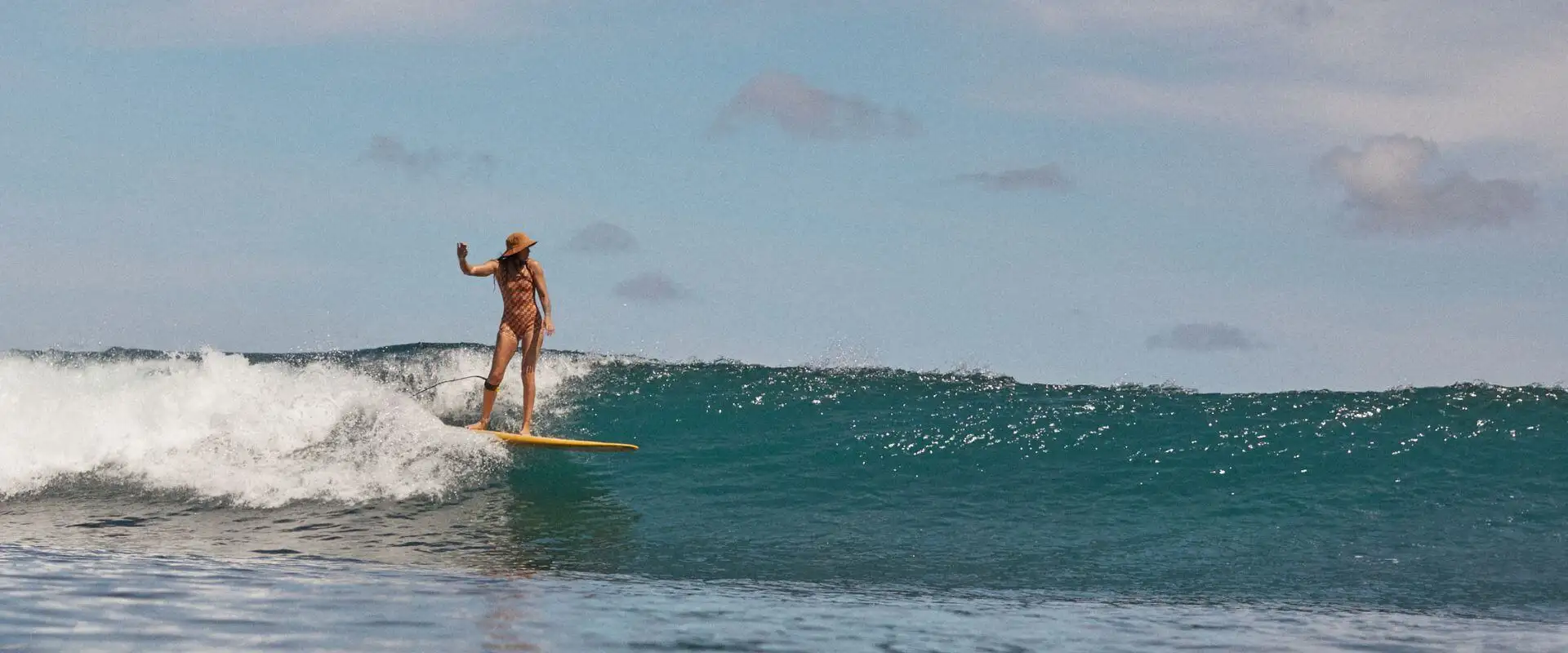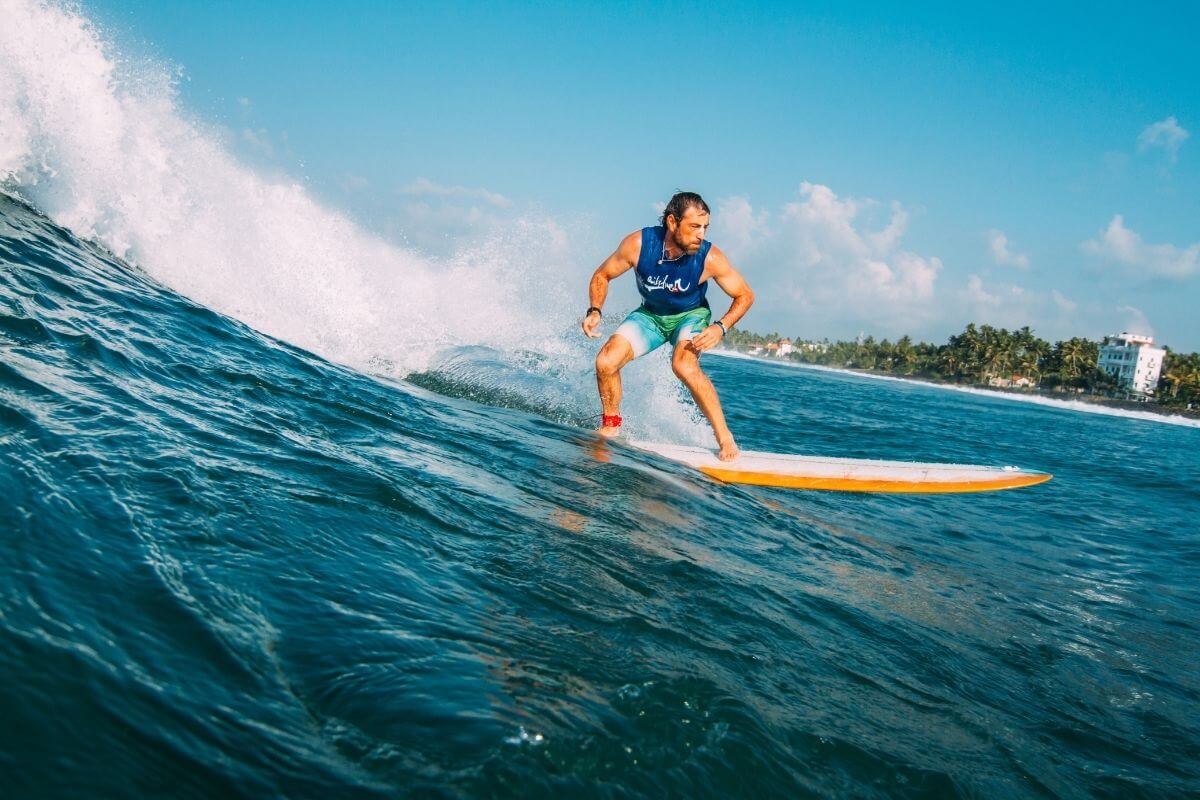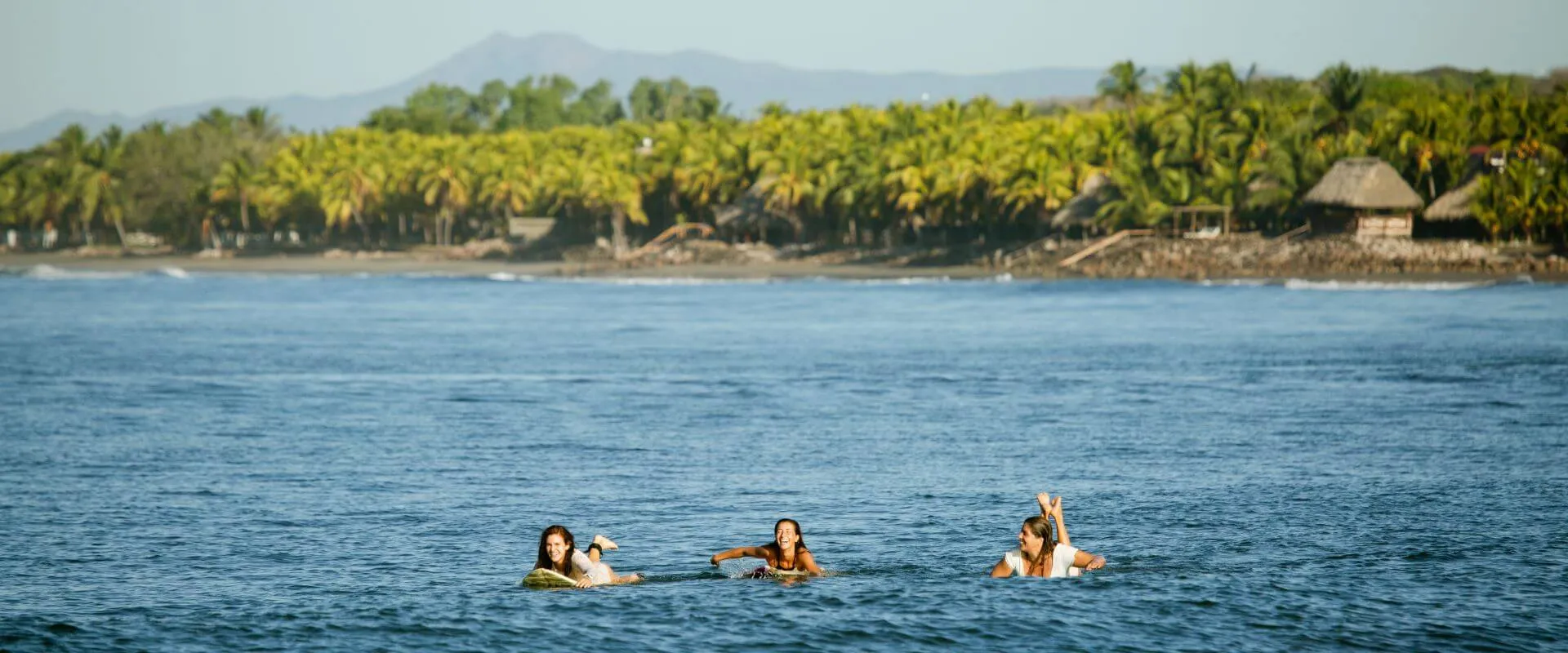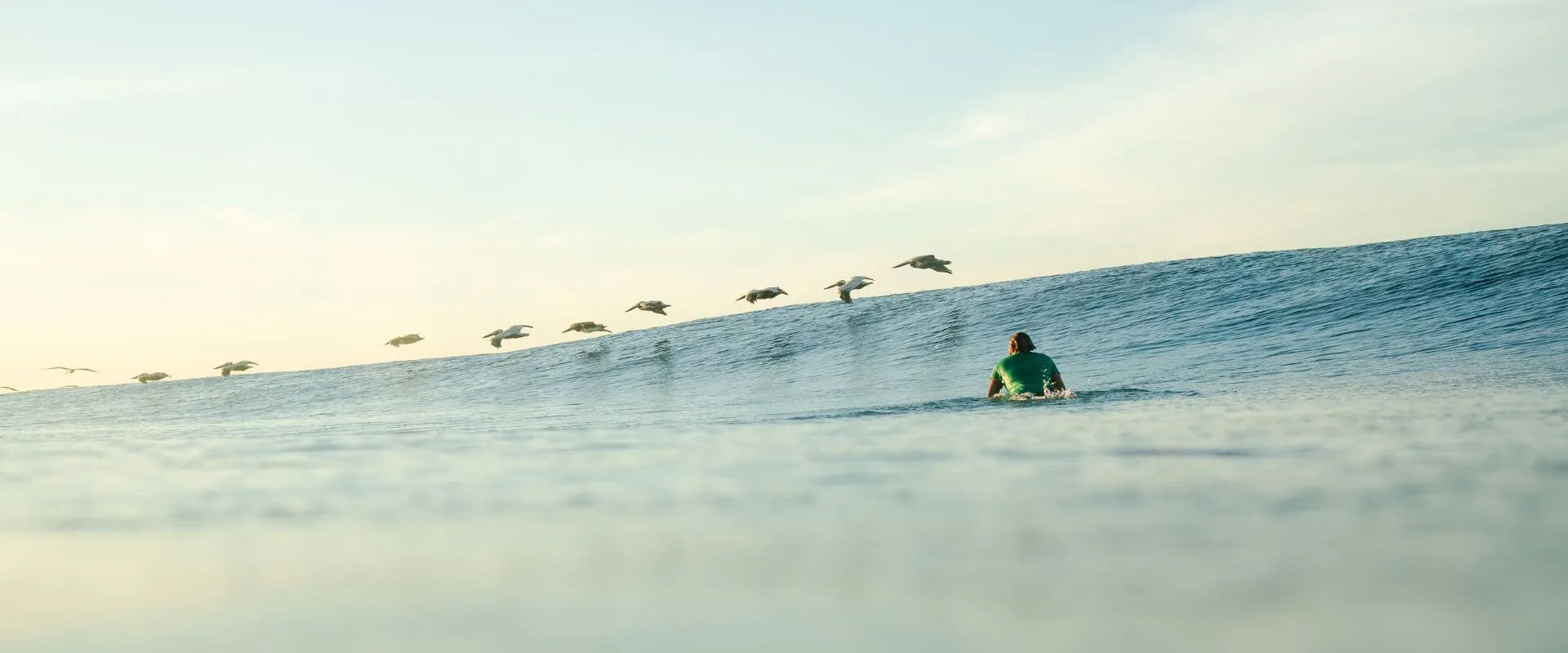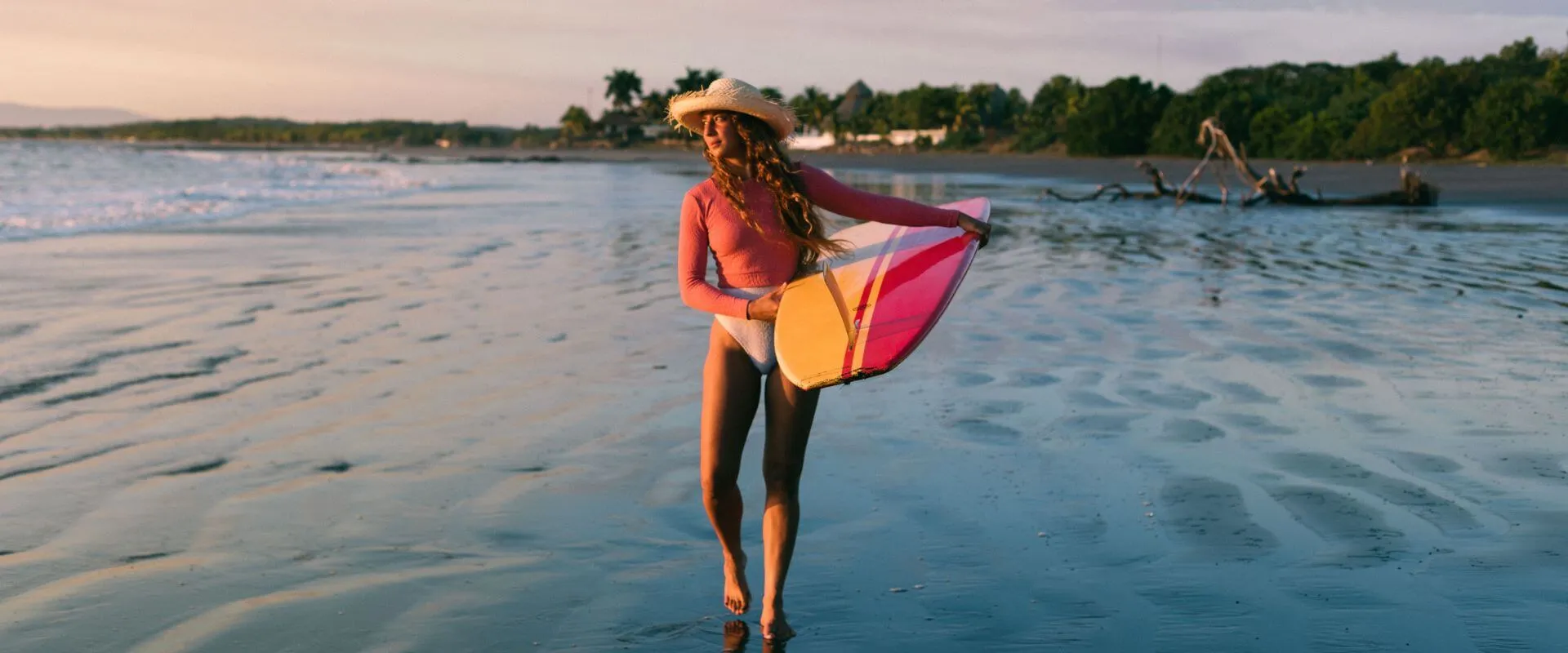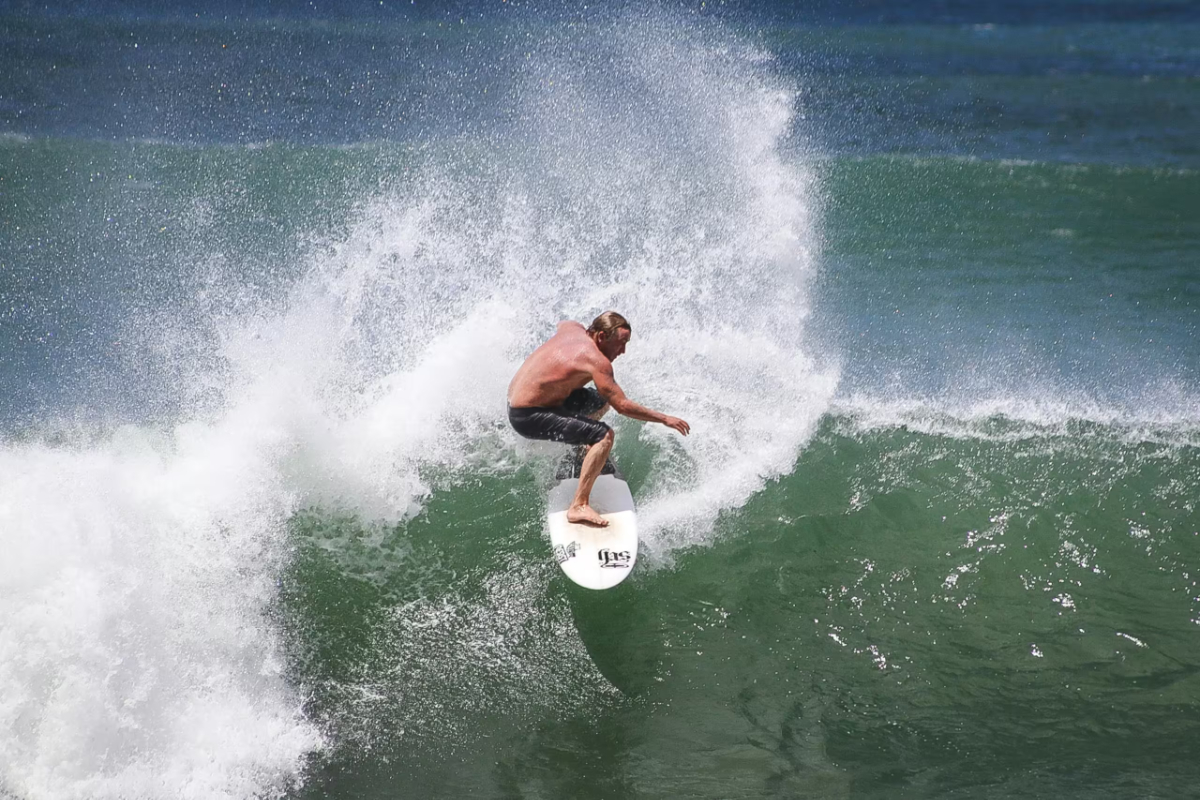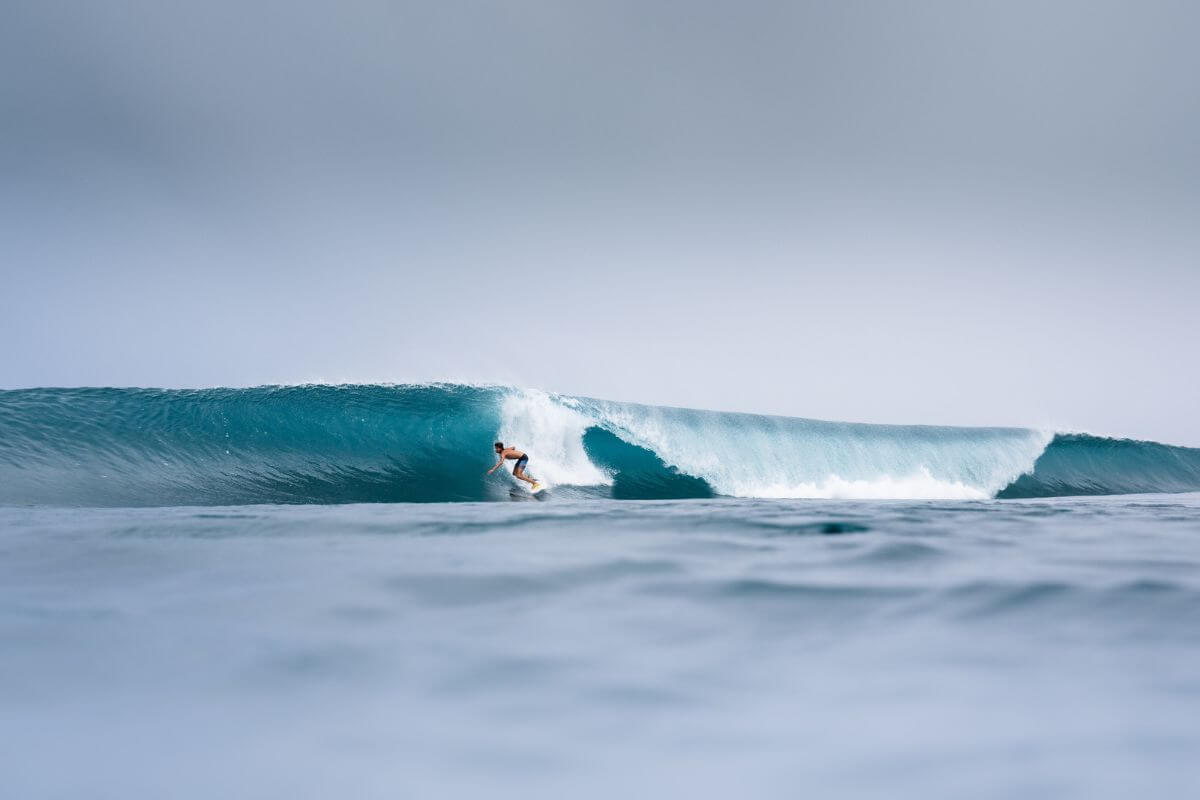Surfing is a thrilling sport that can provide an adrenaline rush like no other. It’s also a wonderful way to relax, unwind, and enjoy the beauty of the ocean. For those looking to pursue surfing as a hobby or even an athletic pursuit, it’s essential to master the basics and get off on the right foot.
Whether you’re a complete beginner or looking to improve your surfing skills, this comprehensive guide has everything you need to know. From choosing the right surfboard and learning the basics of paddling and standing up to catching waves and performing turns, we’ll cover it all.
Ready to conquer the waves? Dive into an exciting world of surfing and explore the stunning surf camps and resorts in the Maldives, Indonesia, Morocco, Pacific Ocean, and beyond with AWAVE Travel. Let the adventure begin!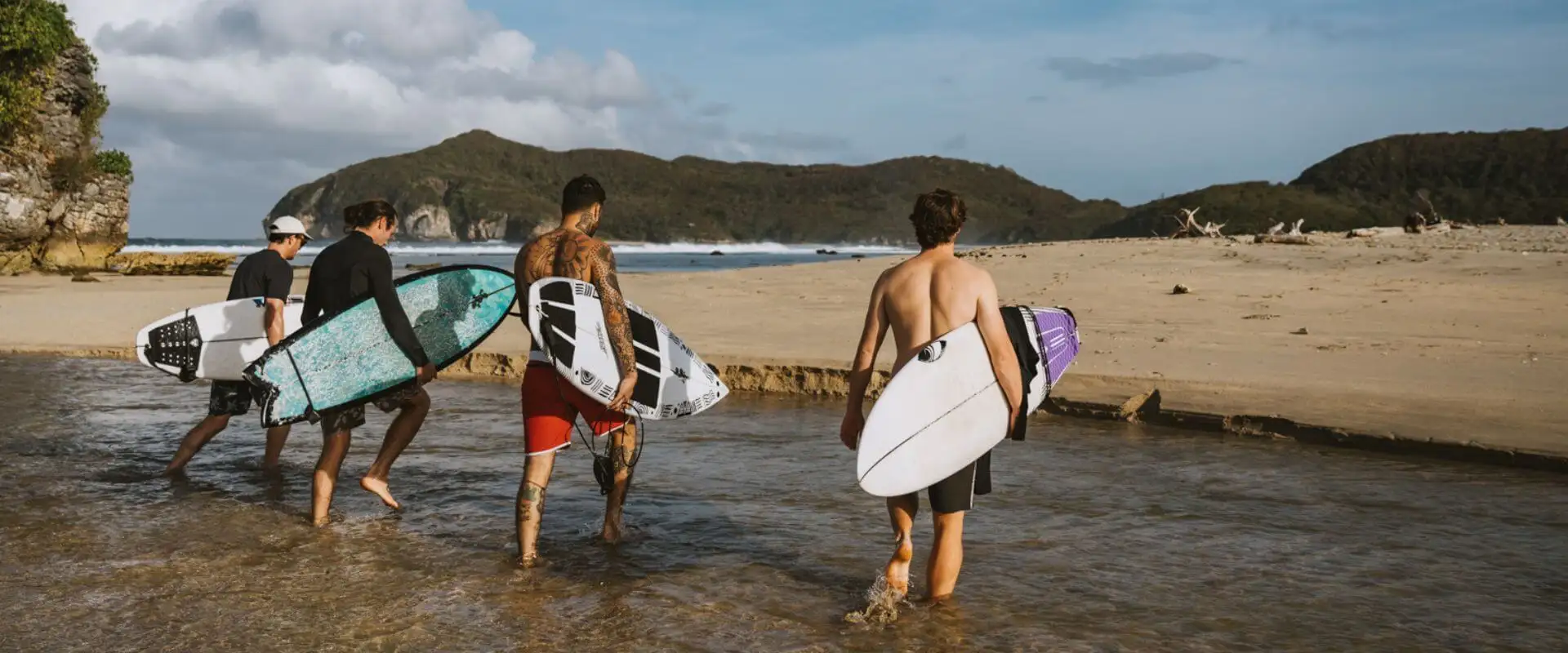
Master the Basics of Surfing: A Complete Guide for Beginners
Surfing is an exciting and invigorating sport that allows you to enjoy nature while testing your physical and mental abilities. Whether you’re an aspiring surfer or have some experience under your belt, mastering the basics is crucial to your success in the sport. In this comprehensive guide, we’ll cover essential skills, equipment, safety tips, and techniques that budding surfers should know before hopping on a board and getting some waves.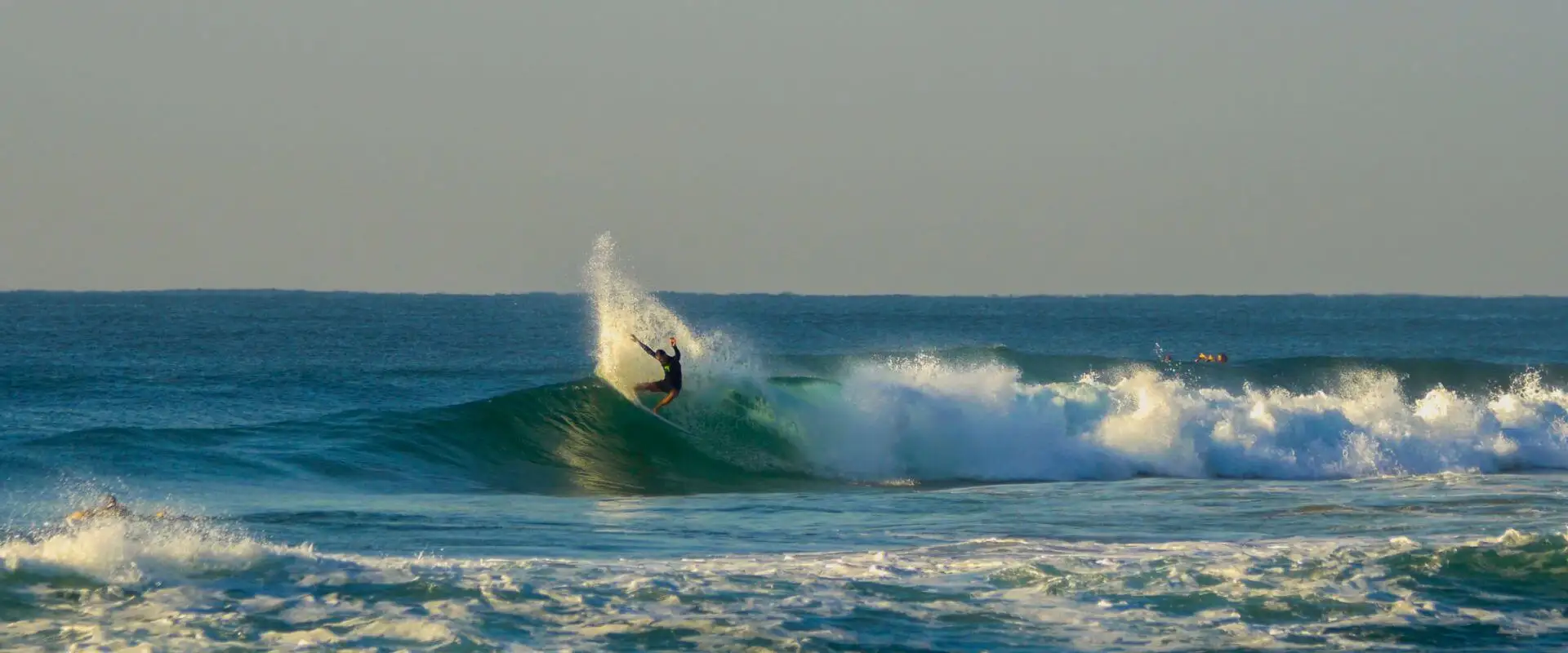
The Surf Lingo: Understanding the Waves and What They Mean
The world of surfing comes with its own unique set of terms and jargon that you must familiarize yourself with to make sense of the waves and surf conditions. Here are some essential surfing terms to get you started:
- Swell: A series of ocean waves created by weather systems far out at sea.
- Peak: This is the highest point of the wave, where it breaks and forms two separate waves—one going left and the other going right.
- Offshore: Wind that blows from the shore out to sea, which helps create smooth, clean waves perfect for surfing.
- Duck dive: A technique used to dive under an approaching wave while paddling out to the line-up.
- Wipeout: Falling off your surfboard while riding a wave.
Getting a Grip on Your First Surfboard
As mentioned in the introduction, choosing the right surfboard plays a significant role in your surfing journey’s success. Here are a few tips to help you pick the perfect surfboard for beginners:
- Begin with a foamie: These soft-top longboards offer maximum stability and are ideal for beginners learning the ropes. The added buoyancy helps you catch waves easily and stay balanced while practicing your stand-up technique.
- Length and volume matter: Longer and thicker boards provide more stability for learning while shorter, thinner boards offer better maneuverability for experienced surfers. As a beginner, stick to longboards for the extra buoyancy needed during the initial learning stages.
- Gradually scale down: As your skills progress, opt for a smaller board that allows for better control and advanced maneuvers like turns, cutbacks, and snaps.
Essential Surfing Skills: Paddle, Pop-up, and Balance
Before you hit the waves, mastering essential skills like paddling, the pop-up, and finding your balance is crucial.
- Paddling: The act of propelling your surfboard through the water using your arms. To paddle efficiently, place your chest on the board’s center, look forward, and use long, extended strokes on both sides of your surfboard.
- Pop-up: This is the process of quickly jumping from your prone position to a standing stance on your surfboard. Perfecting the pop-up ensures smooth transitions and helps avoid wipeouts.
- Balance: Establishing a stable stance with your feet shoulder-width apart and knees slightly bent will help you maintain balance, absorb wave motions, and maintain control of your surfboard.
Surfing Safety and Etiquette: Sharing the Waves with Respect
Surfing, like any sport, has specific unwritten rules and etiquette that help maintain order and safety among surfers. Here are some key guidelines to follow:
- Priority rule: The surfer who is closest to the breaking wave’s peak has priority, meaning they have the right to catch and ride the wave. Avoid “dropping in” on other surfers, as this can cause collisions and injuries.
- Respect the locals: Always give deference to local surfers, as they know the break better than you and have likely earned the respect of their community.
- Communicate: If you’re unsure of local surf conditions, rules, or break etiquette, don’t hesitate to ask a more experienced surfer for guidance.
The Beginner’s Bible to Surfing: Everything You Need to Know to Get Started
Mastering the basics of surfing requires patience, practice, and a genuine passion for the sport. By learning the lingo, choosing the right surfboard, perfecting essential skills, and understanding surf safety and etiquette, you’ll be well on your way to an unforgettable surfing journey.
The thrill of catching your first wave is unparalleled, and once you experience it, you’ll be chasing it for the rest of your life. So what are you waiting for? Dive into the fascinating world of surfing and explore the majestic surf charters and surf resorts in the Maldives, Indonesia, Morocco, Pacific Ocean, and beyond with AWAVE Travel. Your unforgettable surfing adventure awaits!